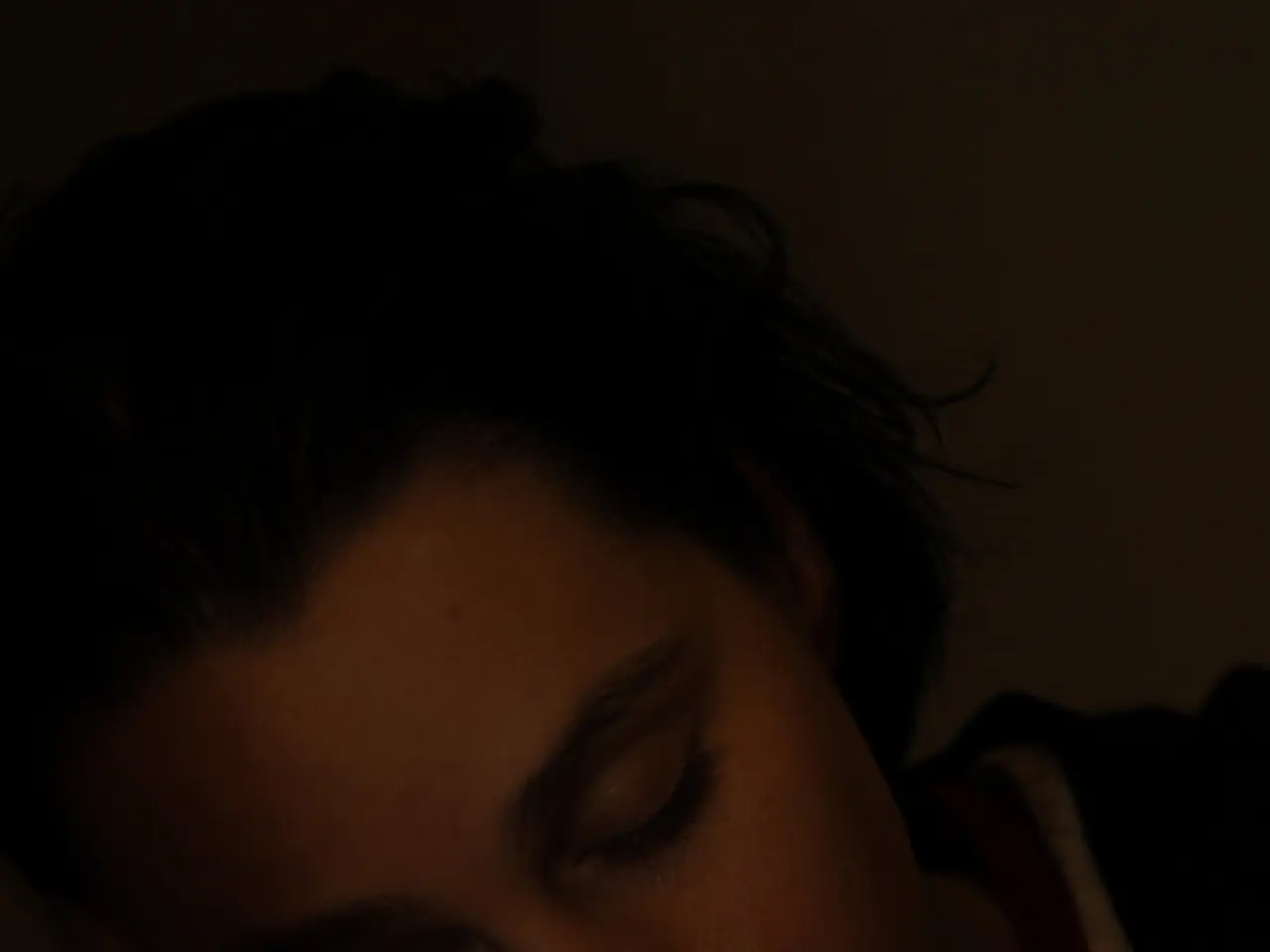Depression's Impact on Sleep and Available Treatment Strategies
Sleep disorders and depression are interconnected in complex ways, with each condition often exacerbating the other. This article offers an overview of their relationship and potential treatment options.
The relationship between sleep disorders, particularly insomnia, and depression is bidirectional. Insomnia significantly increases the risk of developing depression, while depression often worsens sleep disturbances. This interconnection is partly due to the dysregulation of key neurotransmitter systems like serotonin and dopamine, and disruptions in the hypothalamic-pituitary-adrenal (HPA) axis, which governs stress responses.
Chronic sleep deprivation from insomnia can have a profound impact on mental health. It can impair emotional regulation, decision-making, and cognitive functioning, making psychiatric symptoms worse. Research suggests that moderate sleep compensation (e.g., weekend catch-up sleep) may reduce depression severity, while excessive fluctuations can worsen symptoms.
For co-occurring sleep disorders and depression, integrated treatment approaches are crucial. This involves addressing both conditions simultaneously to prevent relapse. Cognitive Behavioral Therapy (CBT) is effective for both insomnia (CBT-I) and depression. It helps alter unhealthy sleep habits and thought patterns.
In addition to therapy, lifestyle changes can also play a significant role in managing sleep disorders and depression. Encouraging regular physical activity, practicing stress reduction techniques like mindfulness or meditation, and maintaining a consistent sleep schedule can improve sleep quality.
For sleep disorders, sleep hygiene practices, such as avoiding caffeine and electronics before bedtime, creating a relaxing sleep environment, and establishing a consistent sleep schedule, can be beneficial. In some cases, prescription sleep aids or supplements like melatonin may be recommended, though they should be used under medical supervision.
For depression, psychotherapy, such as CBT and interpersonal therapy (IPT), are effective for managing depressive symptoms. Antidepressants may also be prescribed to help stabilize mood and reduce depressive symptoms.
It's essential to note that when a person's sleep problems do not improve after treatment for depression, they should tell their doctor and look for other treatments. Misdiagnosis is possible due to the overlap of symptoms between sleep disorders and depression.
Depression may lead to disrupted sleeping patterns, and lack of sleep or poor quality sleep can cause changes in a person's thinking, mood, and emotions. Excessive daytime sleepiness (EDS) can have adverse effects on people's cognitive and behavioral functions.
Treatment for sleep disorders and depression-related symptoms can vary based on the type of sleep disorder. For instance, people with obstructive sleep apnea (OSA) may benefit from using a continuous positive airway pressure (CPAP) machine.
If a person is experiencing excessive daytime sleepiness, changes in mood or personality, or feelings of helplessness or hopelessness, they should seek help immediately. Doctors may prescribe mood stabilizers, selective serotonin reuptake inhibitors (SSRIs), or tricyclic antidepressants to treat sleep problems and depression.
Preventing insomnia could potentially reduce depression, as a positive relationship exists between the two. People with insomnia are 10 times more likely to develop depression compared to people who report sleeping well. A person can get cognitive behavioral therapy (CBT) to treat both depression and insomnia.
In summary, treating co-occurring sleep disorders and depression requires a comprehensive approach that addresses both conditions simultaneously. This can involve behavioral therapies, lifestyle adjustments, and when necessary, medication to ensure effective management of symptoms.
- The interconnection between insomnia and depression is partly due to the dysregulation of key neurotransmitter systems like serotonin and dopamine, and disruptions in the hypothalamic-pituitary-adrenal (HPA) axis.
- Chronic sleep deprivation from insomnia can impair emotional regulation, decision-making, and cognitive functioning, making psychiatric symptoms worse, such as impotence or changes in mood and emotions.
- For co-occurring sleep disorders and depression, integrated treatment approaches are crucial, combining therapy options like Cognitive Behavioral Therapy (CBT) for both insomnia and depression, and lifestyle changes like regular physical activity and stress reduction techniques.
- In some cases, prescription sleep aids or supplements like melatonin may be recommended for sleep disorders, but they should be used under medical supervision. On the other hand, psychotherapy such as CBT and interpersonal therapy (IPT) are effective for managing depressive symptoms, while antidepressants may also be prescribed.
- Misdiagnosis is possible due to the overlap of symptoms between sleep disorders and depression, so people should tell their doctor if their sleep problems do not improve after treatment for depression, and look for other treatments. If a person is experiencing excessive daytime sleepiness, changes in mood or personality, or feelings of helplessness or hopelessness, they should seek help immediately.




